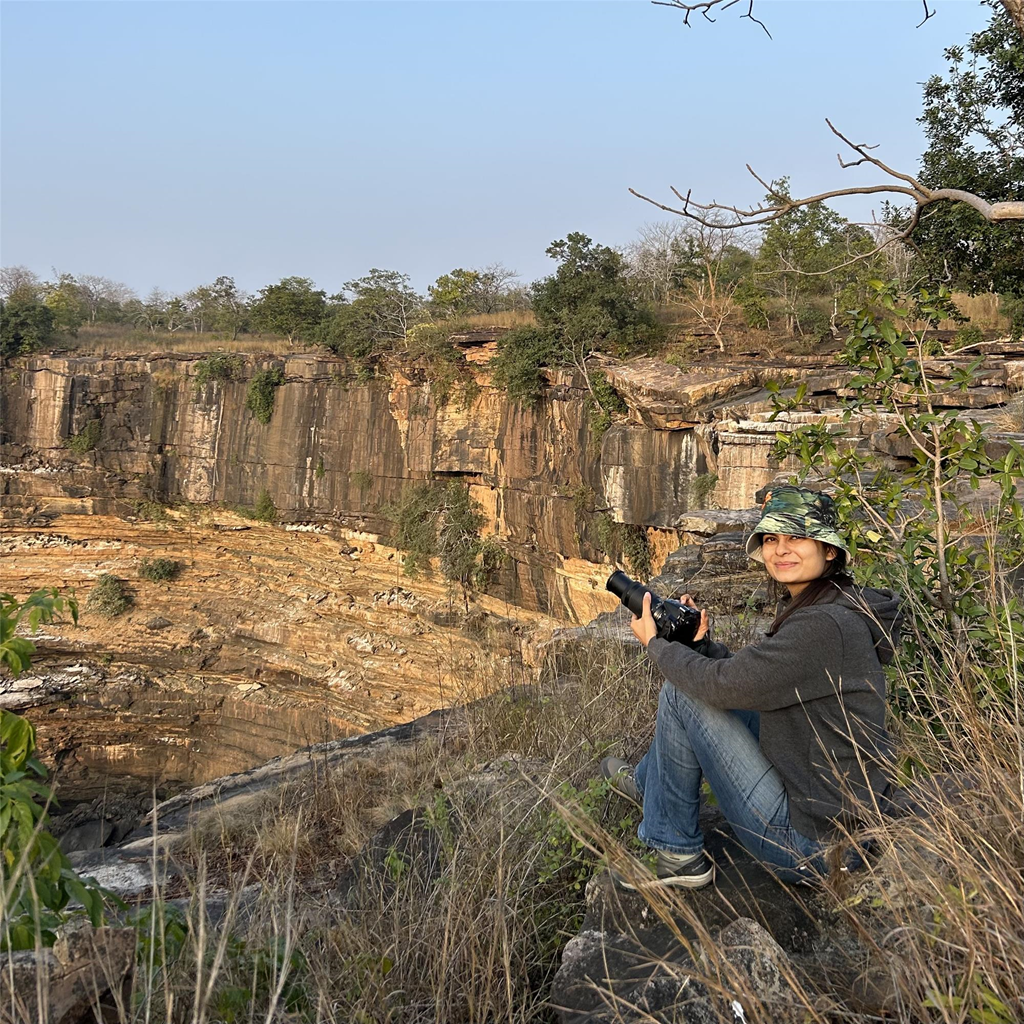Aishwarya Laghate selected as the 2025 James A. Kushlan Graduate Student Award Recipient
Posted on September 22, 2025 in Science

Hawk Mountain Sanctuary recently selected Aishwarya Laghate, India, as its 2025 James A. Kushlan Graduate Student Award recipient. Aishwarya is a doctoral candidate at the Centre for Wildlife Studies in affiliation with Manipal Academy for Higher Education, Bengaluru, India. She is monitoring health and efficacy of carcass dumping grounds for vultures in Madhya Pradesh, India.
“Aishwarya is the perfect example of a brilliant, up-and-coming conservationist. She has been passionate by the natural world from a very young age and aims to make a significant difference for struggling vulture populations in India, where the need couldn’t be more pressing,” says Hawk Mountain Senior Scientist and Director of Graduate Studies Dr. JF Therrien.
“Her time here as a conservation science trainee in spring 2025 allowed us all to see how driven and successful she is,” he adds.
Once abundant across the Indian subcontinent, vultures have experienced drastic population declines over the past few decades, with several species now classified as critically endangered. The disappearance of vultures has led to increased carcass accumulation and the subsequent rise in diseases, which affect other wildlife, livestock, and human populations. Conservation strategies have been developed to counteract these declines and provide vultures with a consistent and potentially safe food source. Aishwarya’s project will assess the efficacy of these strategies.
The James A. Kushlan Award was established in 2005 to support graduate students in their work for or with Hawk Mountain Sanctuary through a generous gift established by the Kushlan Endowment Fund. The award is competitive and based on the merit of research project proposed. It is awarded to a qualified graduate student working in raptor conservation and without geographic restriction. The Hawk Mountain Graduate Student Program is a strategy to support the most talented up-and-coming raptor biologists and assist them with completing independent research that not only adds to our understanding of raptor conservation, but also helps to establish young professionals globally as leaders in the conservation community.
For more information or to support the Graduate Student Program, please contact Dr. JF Therrien at [email protected].